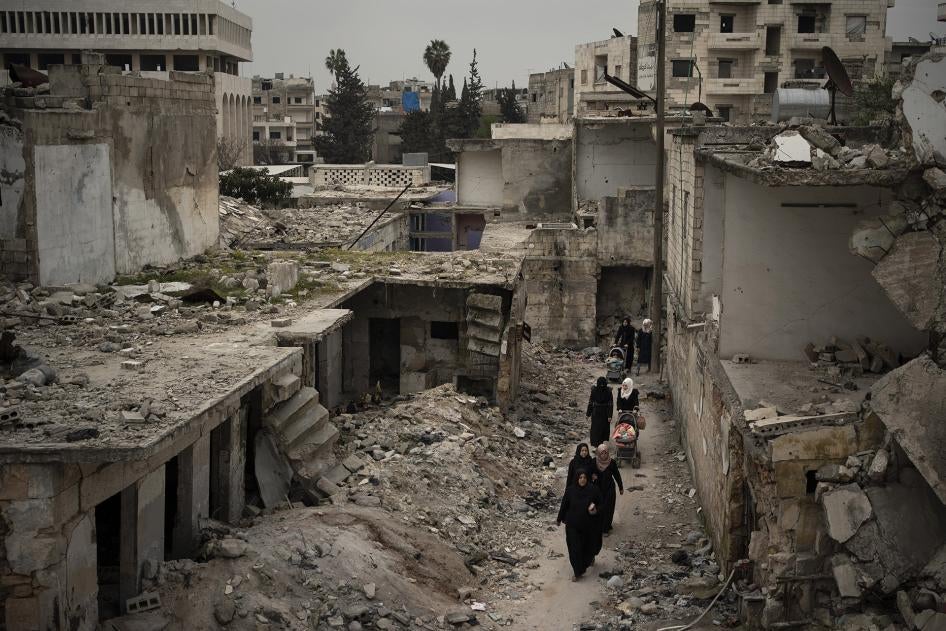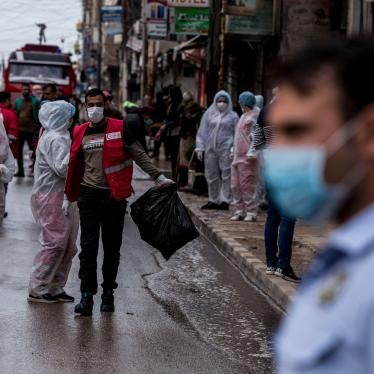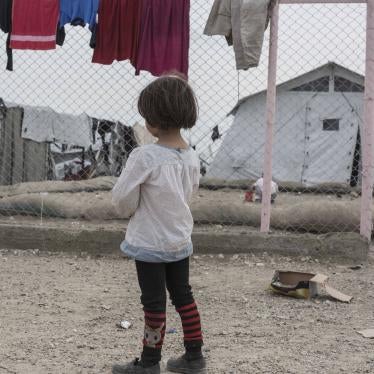The UN Security Council’s move last week to confine official, cross-border humanitarian aid to northern Syria to a single crossing on the Turkish border is the final nail in the coffin of the UN’s 6-year-old aid mechanism. It’s also another example of Moscow abusing its veto power, politicizing humanitarian aid, and dismissing both civilian lives and the spread of Covid-19 in northern Syria.
Syrians who benefit from humanitarian aid coming across the one remaining authorized border crossing at Bab al-Hawa might be relieved they were spared the fate of millions of others who relied on the crossings Russia has shut down. But the outcome of last week’s negotiations is a victory for no one but Russia and the government of Syrian President Bashar al-Assad.
The UN and its member countries should immediately explore other avenues to resume cross-border aid to Syria’s northeast and parts of the northwest not in reach of Bab al-Hawa. This is especially important in the wake of last week’s confirmation that Covid-19 has reached these parts of the country. If UN member states allow Russia and the Assad government to dictate when and where aid gets in or doesn’t, Covid-19 could spread like wildfire in the event of an outbreak.
This is not the first time Russia has blocked Security Council action on Syria. It has used its veto 16 times since 2011 to shield the Assad government, usually backed by China. But there are ways to get around this deadlock. In 2016, the General Assembly established the International, Impartial and Independent Mechanism to gather and preserve evidence of grave crimes in Syria. In 2018, France and Britain led efforts to bypass the Council after Russia terminated a UN-led investigative body tasked with identifying those responsible for chemical weapons attacks in Syria. That effort created the Investigation and Identification Team at the Organization for the Prohibition of Chemical Weapons, which recently added new confirmations of the Syrian government’s use of chemical weapons.
Russia appears determined to end the last remnants of cross-border aid to northern Syria, arguing that it undermines Syria’s sovereignty and that enough aid can reach these areas from Damascus, which, as Human Rights Watch has demonstrated, is a fiction.
But there are only 12 months before the last border authorization expires. Before then, UN member states should explore options besides the Security Council to ensure Syrians get the aid they need to survive, especially in northeast Syria. No government should withhold consent to such aid for arbitrary reasons – especially when that government isn’t in control of the territory in question.
The priority should be saving lives, not slavishly adhering to concepts that are virtually meaningless for areas outside government control.










